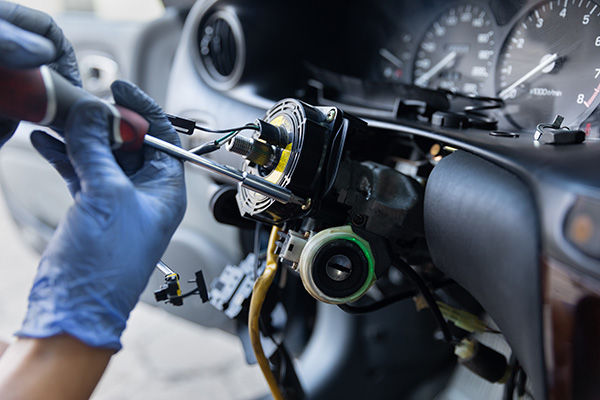
Hearing strange noises when you turn your vehicle can be unsettling. It’s not just an annoyance - it often signals an underlying issue that needs attention. From creaks to clunks, these sounds can stem from a variety of sources. Understanding the common causes can help you identify and address potential problems before they lead to more serious damage. Let’s explore the reasons behind these mysterious sounds and what you can do about them.
Worn Out Suspension Components
One of the primary culprits behind weird noises during turns is worn-out suspension components. Your car’s suspension system includes parts like bushings, ball joints, and tie rods. Over time, these components can degrade, leading to noises when the vehicle turns.
Bushings
Bushings are rubber components that cushion the connection points of your suspension system. When they wear out, you might hear creaking or squeaking noises.
Ball Joints
These joints connect the control arms to the steering knuckles, allowing for smooth movement. Worn ball joints can cause clunking sounds, especially during turns.
Tie Rods
Tie rods connect the steering rack to the steering arm. When they become loose or damaged, they can produce knocking noises.
Regular maintenance and inspections can help catch these issues early, ensuring a smoother and quieter ride.
Low or Contaminated Power Steering Fluid
Power steering fluid is crucial for the smooth operation of your vehicle’s steering system. When the fluid is low or contaminated, it can lead to noises during turns.
Low Fluid Levels
If your power steering fluid is low, the steering pump may produce a whining or groaning noise. This is often due to air bubbles in the fluid, which can occur when levels are too low.
Contaminated Fluid
Over time, power steering fluid can become contaminated with dirt and debris. This contamination can cause the steering pump to work harder, resulting in noises during turns.
Checking and replacing your power steering fluid regularly can help prevent these issues and keep your steering system in top condition.
Faulty CV Joints
Constant velocity (CV) joints are essential for transferring power from the transmission to the wheels while allowing for flexibility in the drivetrain. When CV joints fail, they can produce clicking or popping noises, especially during sharp turns.
Outer CV Joints
These are located at the ends of the drive shafts. When the protective boot surrounding the joint tears, it allows dirt and moisture to enter, leading to wear and noise.
Inner CV Joints
Located at the inner end of the drive shafts, these joints can also wear out and cause similar noises.
Regular inspection of CV joints and timely replacement of damaged boots can prevent these noises and ensure reliable drivetrain performance.
Worn Wheel Bearings
Wheel bearings are critical for the smooth rotation of your wheels. When they wear out, they can cause grinding or humming noises, particularly during turns.
Front Wheel Bearings
These bearings support the front wheels and can wear out due to age or contamination. When they fail, you might hear a grinding noise during turns.
Rear Wheel Bearings
Similar to front wheel bearings, rear wheel bearings can also wear out and cause noises.
Replacing worn wheel bearings promptly is essential to maintain safe and smooth vehicle operation.
Loose or Damaged Steering Components
Loose or damaged steering components, such as the steering rack, steering column, and related parts, can cause various noises during turns.
Steering Rack
The steering rack is a crucial part of the steering system. If it becomes loose or damaged, it can produce clunking or rattling noises.
Steering Column
The steering column connects the steering wheel to the steering mechanism. Loose or worn parts in the steering column can cause clicking or popping noises.
Regular inspections and maintenance of steering components can help prevent these issues and ensure safe, noise-free driving.
The Importance of Addressing Noises Promptly
Ignoring strange noises during turns can lead to more significant problems. Addressing these issues promptly is essential to avoid costly repairs and ensure your vehicle remains safe to drive.
- Prevent Further Damage: Unaddressed issues can lead to more severe damage to other components, increasing repair costs.
- Ensure Safety: Some noises can indicate critical problems that affect vehicle safety. Addressing these issues promptly ensures your car remains safe to drive.
- Maintain Vehicle Value: Keeping your vehicle in good condition helps maintain its value and longevity.
Weird noises during turns can indicate serious problems. Schedule a check-up at Future Auto Service today and drive with confidence!